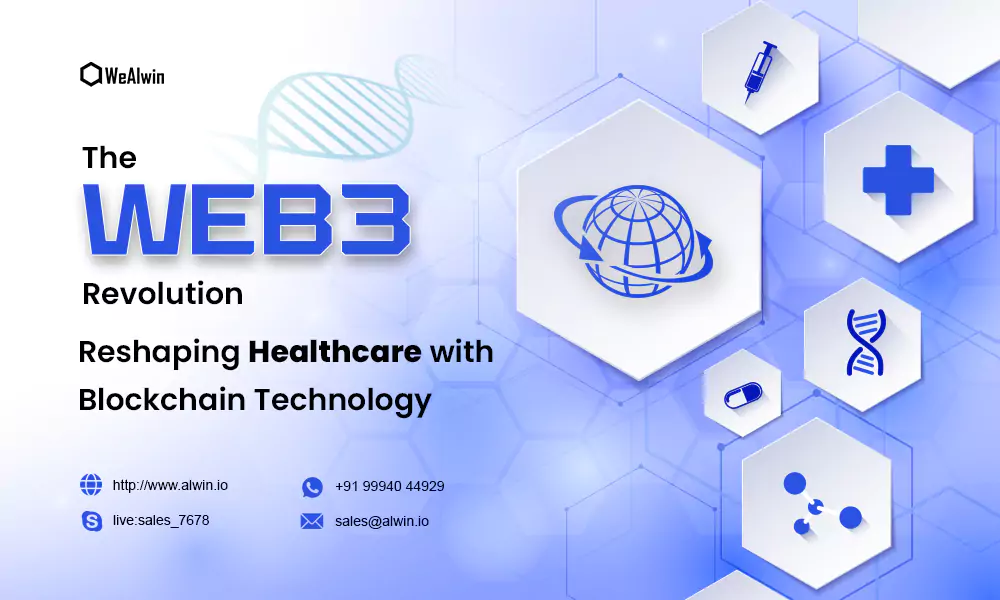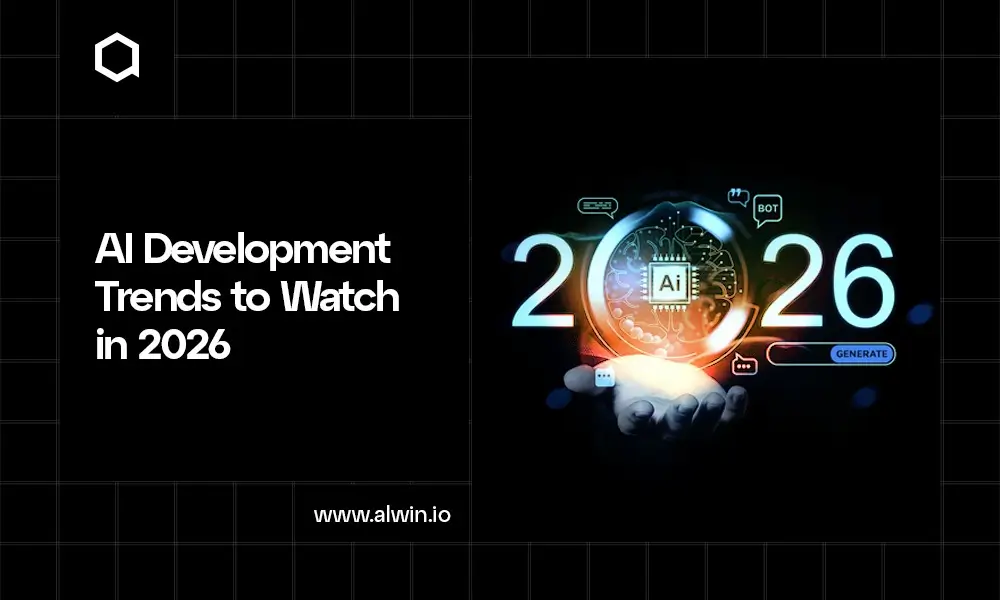In recent years, Blockchain Technology has emerged as a game-changer across various industries, and healthcare is no exception. This article explores the transformative impact of blockchain on the healthcare industry and how it is revolutionizing the way we approach Healthcare Systems.
By leveraging the principles of Web3 and Distributed Ledger Technology, blockchain is paving the way for a more secure, transparent, and patient-centric healthcare ecosystem.
Understanding Web3 in Healthcare
Web3, often called the Decentralized Web, represents the next evolution of the internet. It encompasses a set of principles and technologies that empower individuals and prioritize data privacy, security, and ownership.
These principles align seamlessly with the core values and objectives of healthcare, making a perfect fit for the industry's digital transformation. By embracing Web3, Healthcare organizations can enhance patient outcomes, streamline operations, and increase trust within the ecosystem.
Blockchain Applications in Healthcare
Blockchain technology serves as the backbone of Web3 and offers numerous applications in healthcare. Its decentralized and immutable nature addresses critical challenges in data security and integrity.
According to recent statistics, 60% of healthcare organizations experienced data breaches in the past year, highlighting the urgent need for enhanced data protection. Blockchain's Cryptographic Algorithms and decentralized structure enable secure storage, sharing, and management of health records, safeguarding patient privacy and reducing the risk of unauthorized access.

Moreover, blockchain facilitates various use cases in healthcare, such as data sharing, interoperability, and decentralized networks. By leveraging blockchain, healthcare providers can securely exchange patient information, improve care coordination, and enhance healthcare interoperability standards. Blockchain's distributed ledger ensures the accuracy and consistency of medical data, reducing errors and improving the efficiency of healthcare processes.
Emerging Technologies in Healthcare
The Healthcare Industry is witnessing a rapid emergence of groundbreaking technologies, when integrated with blockchain, can drive significant advancements.
These technologies have the potential to revolutionize Patient Care, Streamline Processes, and improve overall healthcare outcomes.
Let's explore three key emerging technologies and their synergy with blockchain:
Artificial Intelligence (AI)
AI-powered systems and algorithms are revolutionizing healthcare diagnostics, drug discovery, and personalized medicine. Statistics reveal that
- The AI in the healthcare market is projected to grow to $20.65 billion in 2023, with a total market value projected at $187.95 billion by 2030.
- The compound annual growth rate of AI in US Healthcare is 36.1%
- In 2021, AI in the Healthcare Market was worth around $11 billion worldwide, and it is estimated to reach $6.6 billion by 2021
- The AI in healthcare market grew at a rate of 167.1% from 2019 to 2021
When combined with blockchain, AI can leverage the secure and transparent nature of distributed ledgers to Improve data accuracy, Enhance predictive models, and Protect patient privacy.
Internet of Things (IoT)
IoT devices, such as Wearable Sensors and Remote Monitoring Tools, enable real-time health data collection and monitoring. These devices generate a massive amount of sensitive patient data, protecting data integrity and security.
Blockchain offers a decentralized framework for securely managing and sharing IoT-generated healthcare data. This integration ensures data authenticity, reduces the risk of data breaches, and enables seamless data exchange between Healthcare Providers and Patients.
Telemedicine and Remote Patient Monitoring
The increasing adoption of Telemedicine and Remote Patient Monitoring Solutions has transformed healthcare technologies in a far superior way. These technologies provide convenient access to healthcare professionals and enable Continuous Monitoring of patients' health status.
The safety and security of patient data transferred during telemedicine consultations can be guaranteed through the integration of blockchain. The decentralized nature of blockchain maintains trust and data privacy in remote healthcare interactions by preventing unauthorized alteration of critical medical records.
Trends in Healthcare Technology
The Healthcare Technology landscape constantly evolves, with various industry trends shaping. When it comes to blockchain-enabled healthcare, several key trends are driving innovation and transformation.
Tokenized Healthcare Ecosystems: Blockchain's Tokenomics principles enable the creation of tokenized healthcare ecosystems, where patients, providers, and other stakeholders can securely exchange value.
These ecosystems promote Transparency, Incentivize Participation, and Streamline processes such as insurance claims, medical research funding, and supply chain management.
Privacy-Enhancing Technologies in Web3 Healthcare: With growing concerns about data privacy and security, privacy-enhancing technologies (PETs) are gaining traction. In the context of Web3 Healthcare, PETs leverage blockchain's cryptographic protocols to preserve privacy while allowing necessary data sharing for research, public health initiatives, and care coordination.
Decentralized Identity Management in Healthcare: Blockchain offers a promising solution for decentralized identity management in healthcare. By storing patient identities and consent preferences on a blockchain, individuals can have greater control over their personal health data, enabling seamless and secure access across various healthcare providers.
Consult with our business experts to Build your Web3 based Decentralized Healthcare Network! Chat with us on WhatsApp
Use Cases of Web3 in Healthcare Industry
Streamlining Patient Data Management
Managing the vast amount of patient data in Healthcare Institutions can be challenging. With Web3 Technology, Patient Data Management becomes more efficient and organized. Each patient has unique symptoms, medical history, and treatment needs, necessitating comprehensive medical records.
Blockchain, the foundation of Web3, offers a structured and transparent approach to storing and managing patient data. By leveraging Smart Contracts, healthcare providers can securely store patient medical records on the blockchain. Access to the data is granted through a unique public key or D-ID, ensuring that only authorized healthcare professionals can view the information.
This decentralized approach empowers patients to take ownership of their data and facilitates more efficient and personalized healthcare services.
Ensuring Data Security in Healthcare
Traditional healthcare data management systems are susceptible to security vulnerabilities and breaches. Centralized servers that store medical records lack transparency and patients often have limited control over their own information.
Web3 technology addresses these concerns by leveraging the decentralized and unaltered nature of blockchain. Patient data stored on the blockchain is distributed across multiple nodes, making it extremely difficult for attackers to compromise or alter the data. Access to the data requires patient permission, ensuring privacy and reducing the risk of unauthorized access.
By adopting Web3 solutions, Healthcare Providers can enhance data security, protect patient privacy, and mitigate the risks associated with data breaches.
Pharmaceutical Counterfeiting
Pharmaceutical Counterfeiting poses a significant threat to patient safety and the integrity of the healthcare industry. Web3 technology offers a promising solution to combat counterfeit drugs by leveraging the transparency and traceability of the blockchain.
By recording each transaction in the Pharmaceutical Supply Chain on the blockchain, the authenticity of medicines can be verified. If a drug record is not found on the blockchain, it can be identified as counterfeit and eliminated from the supply chain.
Additionally, the use of non-fungible tokens (NFTs) assigned to each drug can further improve supply chain security and streamline tracking processes. Through Web3 applications, the Healthcare Industry can ensure the safety and authenticity of pharmaceutical products.
Surgical Operations with Web3
Emerging technologies such as Augmented Reality (AR), Virtual Reality (VR), and Robotics are revolutionizing surgical procedures in healthcare. However, these technologies alone have limitations in making critical clinical decisions. The concept of the Metaverse, powered by Web3 Technology, holds the potential to transform surgical operations. By integrating AR, AI, VR, 3D reconstruction, blockchain, and more, the metaverse creates a unique ecosystem for surgical collaboration.
Patients requiring specialized surgeries can collaborate with doctors worldwide through immersive virtual environments. Surgeons can plan and perform procedures by accessing a 360-degree view of the patient's body, facilitating accurate diagnosis and treatment. The metaverse opens new possibilities for surgical innovation and expands access to specialized healthcare services.
Transforming Medical Training with Metaverse Technology
Current medical training practices often rely on 2D images and videos, limiting students' learning experiences. The rise of Metaverse Technologies, powered by Web3, offers a breakthrough in medical education. Institutions can leverage Augmented Reality (AR), Virtual Reality (VR), and Mixed Reality (MR) to provide students with immersive and interactive learning experiences.
Metaverse platforms enable students to visualize the human body in 3D, explore cellular-level details, and simulate real-world procedures. This technology empowers students to gain hands-on experience without the ethical concerns associated with traditional training methods.
By embracing Web3 and the Metaverse, medical education can be transformed, allowing students to develop advanced skills and improve patient care.
Consolidating Patient Medical Records and Enabling Monetization
The current healthcare system often results in fragmented patient medical records across multiple institutions. Web3 Technologies offer a solution by enabling patients to consolidate and manage their records in one place.
Patients can securely store their complete history of medical records on the blockchain and access them whenever needed, eliminating the burden of carrying physical files and repeating medical tests to identify the disease.
Moreover, patients can leverage the blockchain's capabilities to convert their medical records into non-fungible tokens (NFTs). These NFTs can be invulnerable stored and sold to Medical Professionals or third parties for research purposes or the development of new medical products. This empowers patients to take control of their medical data and opens up opportunities for data monetization while maintaining privacy and traceability.
Conclusion
Web3 has the potential to revolutionize the Healthcare Industry by introducing transformative changes. By decentralizing the system, Web3 can return data ownership to the users, who should have had control from the very beginning. Currently, healthcare giants have full authority over the data, allowing them to manipulate at their discretion. They may even profit by selling it to third parties without the knowledge or consent of the users.
The integration of Web3 in healthcare can restore power to the users and establish a structured data management system. Data stored in Web3 is distributed, personalized, and traceable, ultimately fostering transparency, accessibility, and affordability within the healthcare ecosystem.
WeAlwin Technologies, a Web3 Development Company, specializes in creating web3 applications. If you're considering building a web3 app for your healthcare institution, our experts can help you bring your vision to life.



